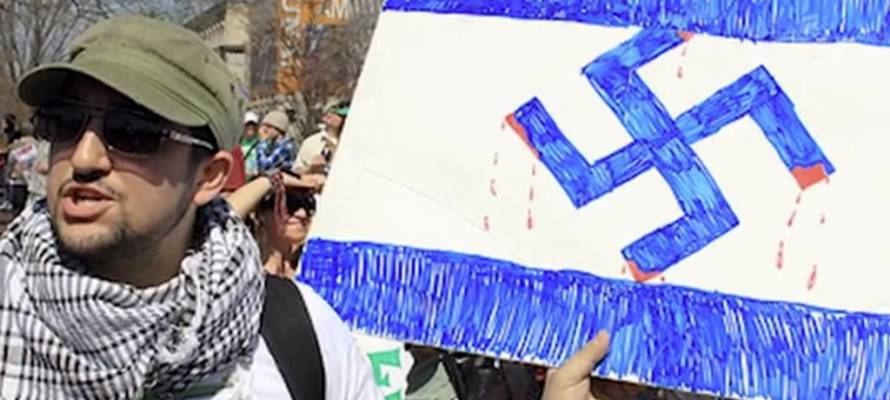A high number of Jewish students have personally experienced anti-Semitism and they say the problem is getting even worse, a new survey indicates.
By Pesach Benson, United With Israel
As students get ready to start a new academic year, a survey found Jewish students are experiencing worrying levels of anti-Semitism at university.
The survey was conducted by Alums for Campus Fairness and compiled into a comprehensive report. ACF is a New York-based network of Jewish university alumni fighting ant-Semitism, demonization of Israel, and bigotry on campuses.
More than 500 Jewish American students of various affiliations who are currently enrolled in university or recently graduated were questioned in March.
The results found a shockingly high number of students who have personally experienced anti-Semitism at college. They say the problem is getting worse, and describe administrators as callous to their concerns.
According to the ACF report, “Nearly 100% of respondents said anti-Semitism is/was a problem on their campus, with current students more likely to call it a ‘major’ problem and graduates a ‘minor’ one.”
The report said that “79% of respondents had experienced or heard firsthand about another student making offensive or threatening anti-Semitic comments in person,” and “44% of respondents had experienced or heard firsthand about being physically threatened because they identify as Jewish.”
Disturbingly, “more than half of the respondents received or heard firsthand offensive or threatening anti-Semitic comments from faculty or university employees.”
As a result, the survey found, “69% of students and grads say they have avoided certain places, events, or situations at school because they are Jewish.”
Not surprisingly, “95% of respondents identified anti-Semitism as a problem on U.S. college campuses, with three out of four describing it as a ‘very serious problem.'” The report added that nearly half of the current students said problems were getting worse on their campuses.
Students were also asked to share anecdotes, many of which included Jewish stereotyping, scornful Holocaust comparisons and other anti-Semitic tropes. The stories also highlighted a great deal of indifference from university administrators.
“I had a professor make a horribly offensive analogy about the Holocaust. When I told her it was offensive, she gaslit me and said if I was so sensitive, I should find another career,” one student responded, adding, “there has been rising anti-Israel activity on-campus. At the same time, we have found swastikas and hate-speech from alt-right groups on campus.”
Another student wrote, “UConn has experienced seven anti-Semitic incidents in the year and three during Passover alone. Each act has gotten bigger and bolder, and the students have become frightened,” in reference to the University of Connecticut.
The ACF report concluded with a number of recommendations for the universities, including adopting the the International Holocaust Remembrance Alliance working definition of anti-Semitism. This definition has already been adopted by more than 30 countries, as well as the U.S. Department of Education, among other governmental and political institutions.
“These findings illuminate the troubling reality on U.S. campuses—antisemitism is increasingly a pernicious threat, with Jewish students under siege,” said ACF Executive Director Avi Gordon.
“Today’s universities take great pains to embrace and protect students from all races, religions, and backgrounds. But Jewish students are often left to fend for themselves against discrimination. Administrators must take immediate steps to remedy this situation, and alumni should work with administrators, students, and allies alike to rid their alma maters of hate.”
